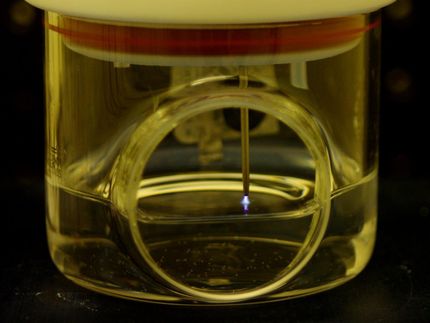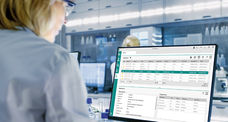Protea Biosciences Concludes New Technology License Agreement
LAESI technology identifies viral-infected cells in minutes
Advertisement
ProteaBio Europe SAS announced that the company has concluded an exclusive, worldwide license agreement with George Washington University for commercial rights to a new technology that provides rapid identification of a broad range of chemicals and biomolecules.
Known as Laser Ablation Electrospray Ionization or “LAESI” mass spectrometry, the technology is capable of directly identifying proteins, peptides, lipids, and metabolites found in biological samples, including tissue, blood, urine and even single cells. Extremely rapid (less than 2 seconds per analysis), sensitive and quantitative, LAESI also provides 3 dimensional mapping of biomolecules through depth profiling and lateral imaging. Proteins and metabolites can be identified and localized in cell structures, tissues and fluids.
LAESI technology was invented and developed in the laboratory of Dr. Akos Vertes Ph.D., Professor of Chemistry, Professor of Biochemistry & Molecular Biology, and Founder and Co-Director of the W.M. Keck Institute for Proteomics Technology, at the Department of Chemistry, George Washington University.
Professor Vertes commented, “LAESI represents a minimally invasive and minimally destructive approach to chemical analysis, which means that dynamic, even living cells or tissues can be probed for their molecular composition not only in three dimensions, but also with time. Small sample consumption of the LAESI analysis means that much of the sample remains available for additional investigation.“
In collaboration with the Vertes laboratory, Protea scientists are developing instrumentation and software that will bring the capabilities of the LAESI technology to research laboratories worldwide, beginning in 2011.
Other news from the department science
These products might interest you
Most read news
More news from our other portals
See the theme worlds for related content
Topic World Mass Spectrometry
Mass spectrometry enables us to detect and identify molecules and reveal their structure. Whether in chemistry, biochemistry or forensics - mass spectrometry opens up unexpected insights into the composition of our world. Immerse yourself in the fascinating world of mass spectrometry!

Topic World Mass Spectrometry
Mass spectrometry enables us to detect and identify molecules and reveal their structure. Whether in chemistry, biochemistry or forensics - mass spectrometry opens up unexpected insights into the composition of our world. Immerse yourself in the fascinating world of mass spectrometry!
































































